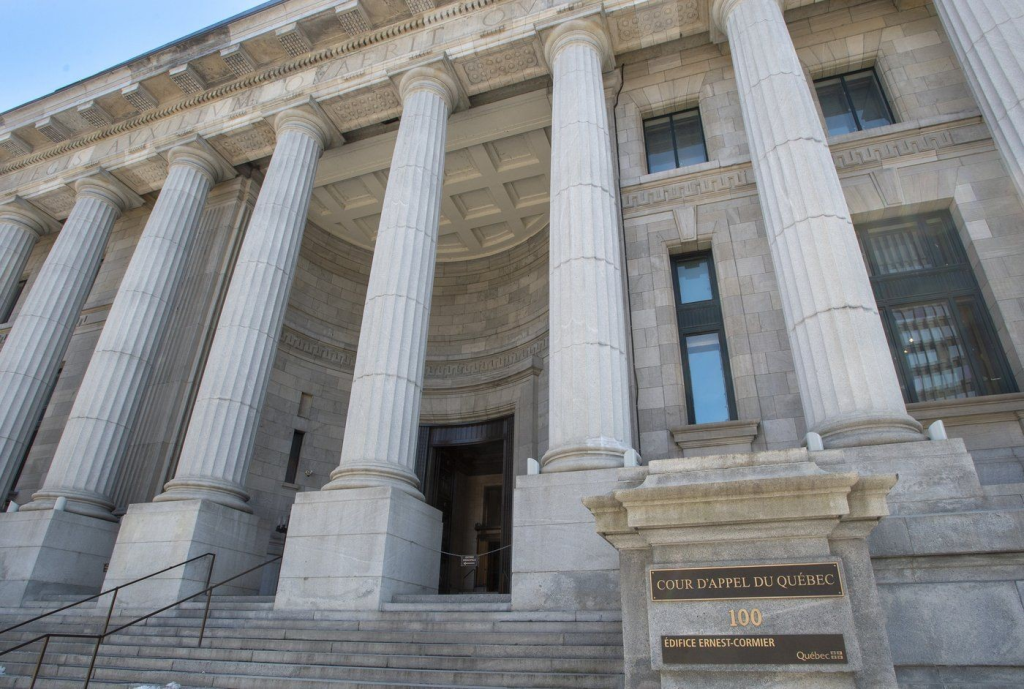Court of Appeal upholds Quebec ruling that invalidated random police stops

Posted October 23, 2024 7:11 pm.
Last Updated October 24, 2024 6:20 pm.
Quebec’s Court of Appeal has upheld a landmark 2022 decision that found a law permitting random traffic stops by police led to racial profiling.
The province’s high court agreed with a Superior Court ruling that declared inoperative an article of the province’s Highway Safety Code that allows police to randomly stop drivers without a reasonable suspicion that an offence has been committed.
The Court of Appeal says in the unanimous decision released today that the law violates Charter rights, including freedom from arbitrary detention and equality rights.
The legal action was brought by Joseph-Christopher Luamba, a 22-year-old Black Montrealer who said he had been stopped by Quebec police nearly a dozen times without reason, and none of the stops resulted in a ticket.
Superior Court Justice Michel Yergeau wrote in the October 2022 decision that “racial profiling does exist. It is not a laboratory-constructed abstraction …. It is a reality that weighs heavily on Black communities. It manifests itself in particular with Black drivers of motor vehicles.”
RELATED:
- Random police stops: civil liberties’ group defends ruling in Quebec Court of Appeal
- Racial profiling: police can’t stop motorists without reason, Quebec Superior Court judge rules
Yergeau said evidence had shown over time that arbitrary power granted to the police to make roadside stops without cause became “for some of them, a vector, even a safe conduit for racial profiling against the Black community.”
“The rule of law thus becomes … a breach through which this sneaky form of racism rushes in,” he added.
Luamba was backed by the Canadian Civil Liberties Association in his constitutional challenge of the practice.
“This decision confirms the lower court’s decision declaring that the police power to conduct arbitrary and suspicionless roadside stops was discriminatory and unconstitutional,” said Harini Sivalingam, the director of the Fundamental Freedoms program for the Canadian Civil Liberties Association.
“The evidence that was presented in trial demonstrated that those who were targeted by these suspicionless road side stops were disproportionately members of black or racialized or indigenous communities and that contributed to racial profiling.”
“I was actually called as a witness for the Luamba case. So I remember clearly testifying in front of the judge,” said Joel DeBellefeuille, the founder and executive director of the Red Coalition, adding, “I believe there was a total of maybe 10 or 12, maybe even 13 witnesses that were called to basically explain to the judge that this absolutely exists.”
The 2022 decision only affected random stops and not structured police operations such as roadside checkpoints aimed at stopping drunk drivers.
The decision was appealed by the provincial government, and some civil rights groups believe the matter could end up before the Supreme Court of Canada.
The Court of Appeal ruling by a three-judge panel gives the provincial government six months to make the necessary changes to the Highway Safety Code.
Public Security Minister François Bonnardel said on the social media platform X that this latest court decision could have direct impacts on the work of police officers to ensure the safety of the population and that “we will take the time to analyze the judgment.”
It’s not clear if the Quebec government will appeal this decision.
“If there is an appeal, which, of course, there could be, but their only recourse would be the Supreme Court of Canada,” said DeBellefeuille.
“Now, every single elected official, municipal, provincial, and federal should be commenting, adding comments to this exceptional ruling. If they do not, there or will be complicit to the ongoing issues of racial profiling in this province.”
This report by The Canadian Press was first published Oct. 23, 2024.








